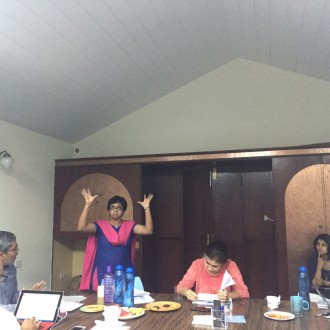
“Sorry Kavi, I don’t think they’re a fit for our fellowship. Their proposals are not system-changing”.
I received this disappointing message countless times this summer while interning at Ashoka, a global non-profit organization committed to the spread of social entrepreneurship. Working out of the India office in the beautiful city of Bangalore, I was responsible for interviewing recently-nominated social entrepreneurs interested in Ashoka’s fellowship program. The program helps connect these select individuals with other fellows, resources, and tools to help further their work in the social space.
Every candidate I had championed was rejected on the basis of this lack of “system change” in their envisioned work. This confused me because each of these candidates was immensely successful in their field. Furthermore, their repeated denial was personally frustrating because when I talked to these candidates, I became personally tied to their work. One particular instance stands out to me. About a month into my internship, I had to reject a candidate who was educating adolescent village girls on gender equality issues through group-based discussions she secretly held in their college dorms. A day after I sent my report to my supervisors, I was unnerved to see the “not a fit” email in my inbox.
I approached one of my supervisors who explained the rejections with a simple statement: “A social entrepreneur isn’t someone who is running a successful venture or even someone working on pressing social problem. A social entrepreneur goes beyond that in creating systemic change in society.” Having originally overlooked the importance of this ‘systemic’ aspect, I further researched this concept to try and understand what she meant.
Systemic change is system changing. It radically changes the way we think about solving a particular problem in society. It results from an idea that is undeniably original but is also supported by unparalleled entrepreneurial drive to create behavior and mindset-altering change in society. A system changing idea isn’t necessary a successful one as I previously believed; it is an idea with the most potential to create far-reaching impact. With this framework in mind, I began to understand. Ashoka wanted to invest its time into people with ideas which would spur others to pursue similar changemaking.
Having just moved back onto campus, I began to think about the implications of this idea of systemic change on undergraduate research here at Princeton. Research that results in system chance can arise from a variety of sources: a new experimental technique, a novel interdisciplinary approach, or even a different way of presenting the research. As we embark on our various research projects this semester, perhaps we want to ask ourselves: What makes my research project exciting? How might this research impact my field of study? Having these in the back of our minds may serve to steer our research toward systemic change, much in the same way the Ashoka fellows will aim to do.
How have you seen your research influence others, in the style of systemic change? We’d love to hear your thoughts, and will feature our favorite answers in an upcoming post!
— Kavi Jain, Engineering Correspondent

